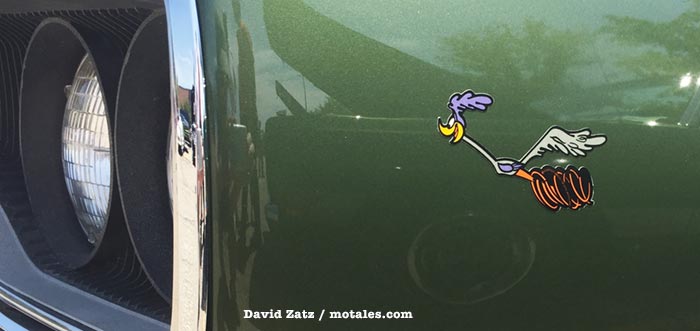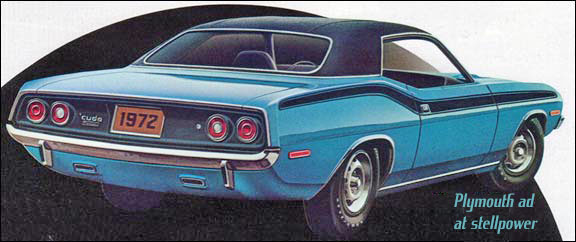Last week, Mopar announced a number of new additions to its Direct Connection portfolio, aimed mainly at racers—Direct Connection’s original 20th-century audience and purpose. These include a new Drag Pak rolling chassis for the Sportsman class in drag racing and a new $8,000 Challenger body-in-white. These were covered by Stellpower in some detail last week, but the Road Runner and Barracuda were barely mentioned in passing.

The Road Runner, launched in 1968 (see the creation story), originally came with a special version of the 383 cubic inch B-engine that produced more power than the normal setup; buyers could also opt for a 440 or 426 Hemi. The Road Runner itself was stripped of creature comforts to save money and weight; carpeting was optional, for example. The combination of the powerful engines and light weight made the Road Runner a true competitor on street and strip, while the low cost made it accessible to people who could not even think of, say, a Plymouth GTX.
The Barracuda was originally a fastback version of the Plymouth Valiant, but the 1970 version was created specifically to fit the biggest engines the company had; this “E body” version of the Barracuda shared a great deal with the new Challenger, but had a smaller wheelbase. Both the Barracuda and Road Runner remain well known today, even among people who are not Mopar fans.

Finale Speed is to make full carbon fiber bodies of classic Mopar muscle cars, to be sold through Direct Connection; the 1970 Dodge Charger will be the first, with promises for the Plymouth Road Runner and Barracuda in the future. From the press release:
SpeedKore offers high-quality carbon fiber upgrades that meet or exceed Original Equipment Manufacturer (OEM) quality standards and shed weight through custom, lightweight carbon fiber. … Direct Connection will also work with Finale Speed to license a 1970 Dodge Charger carbon fiber body which can be built into a complete, finished vehicle. The carbon-fiber-body vehicles, engineered to OEM body specifications, integrate the legendary look and feel of iconic muscle cars with the performance and technology of modern muscle. Future Direct Connection-licensed carbon-fiber bodies through Finale Speed will include the Plymouth Barracuda and Road Runner.
These are not likely to be affordable, legal, or advisable for daily drivers, but should make for a greater “classic Mopar” looking presence on drag strips.
Nothing is stopping Dodge from producing cars that originally had Plymouth names, just as nothing stopped Mitsubishi from borrowing the name “Lancer” from Dodge; Chevrolet from using Plymouth’s “Suburban;” or for that matter Chrysler using Dodge’s “Aspen,” the latter for reasons we likely will never know. They could do a Road Runner version of the Charger EV, for example, stripping out every possible creature comfort and gadget to get the price down, but that strategy didn’t work so well when they tried selling a cheaper version of the SRT cars. A ’Cuda replacing the Challenger has been discussed numerous times, and at least one person wrote that it nearly happened already; but for the moment, what you see, fiberglass bodies, is officially what you get.
Discover more from Stellpower - that Mopar news site
Subscribe to get the latest posts sent to your email.
